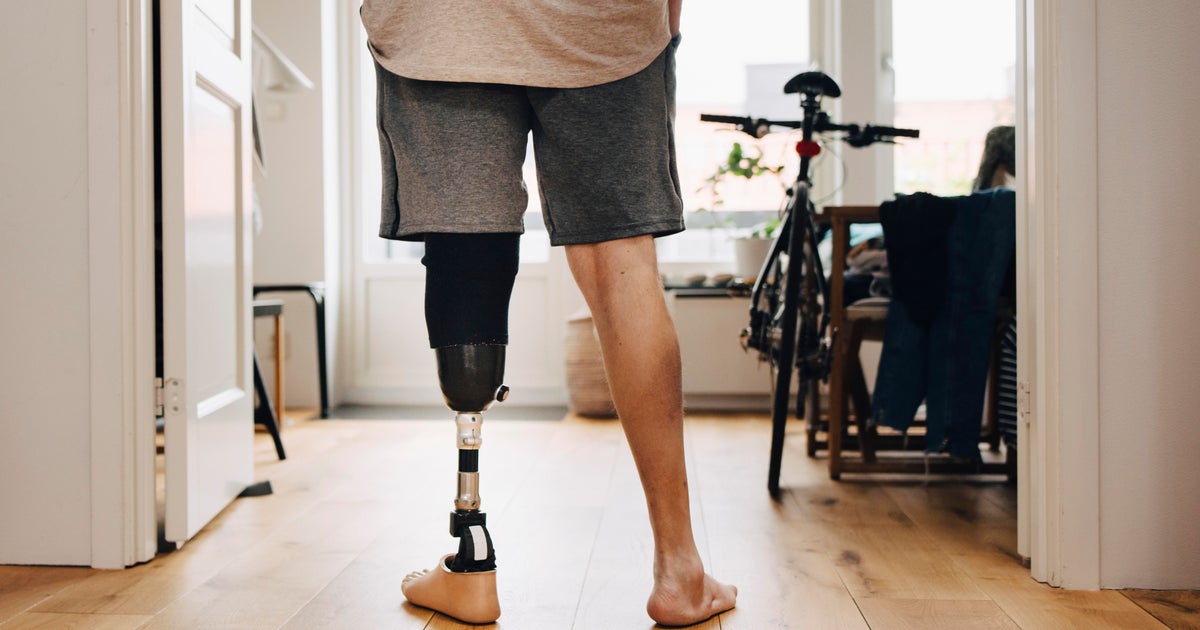Wall Street's rally rolls on, aided by health care stocks
Stocks jumped on Monday, led by big gains for health care companies announcing developments that could aid in the coronavirus pandemic. The boost tacked more gains onto a recent upswing for the market, which is coming off the best week for the S&P 500 in 11 years.
The Dow rose 691 points, or 3.2%, to 22,327, marking its fourth gain in the last five days. The S&P 500 rose 3.4%, while the tech-heavy Nasdaq rose 3.6%.
Nascent optimism is budding that the worst of the selling may be approaching, but markets around the world are still tentative as global authorities try to nurse the economy through the pandemic. The S&P 500 remains 22.4% below its record set last month, and oil tumbled to an 18-year low.
"We believe stock prices have fallen to levels we would consider very attractive based on our assessment of intermediate-term economic and market fundamentals," Burt White, chief investment officer of LPL Financial, and Ryan Detrick, senior market strategist at LPL Financial, wrote to clients on Monday.
A surge for health care stocks led the way at the week's open. Johnson & Johnson leaped 8% after saying it expects to begin human clinical studies on a vaccine candidate for COVID-19 by September. Abbott Laboratories jumped 6.4% after saying it has a test that can detect the new coronavirus in as little as five minutes.
Stocks jumped last week after the Federal Reserve promised to buy as many Treasurys as it takes to get lending markets running smoothly and Capitol Hill reached a deal on a $2.2 trillion rescue package for the economy.
"The market wants to see everything line up, and last week everything lined up," said Nela Richardson, investment strategist at Edward Jones, referring to the unprecedented aid from the Fed and Congress.
Now, she said, President Donald Trump also appears to be in sync with health experts about the need to restrict the economy to slow the spread of the virus. Trump on Sunday extended social-distancing guidelines, which recommend against group gatherings larger than 10, through the end of April. Earlier, he had said he wanted the economy open by Easter.
"Now that message is in line," said Richardson. "All these things line up coming into this week, and that's why you saw strong performance last week continuing today."
A "bear" rally?
Still, the market remains in a bear market, defined as a decline of more than 20% from the market's most recent high.
"We have to look at this rally suspiciously," said Sam Stovall, chief investment strategist for CFRA. He pointed to prior bear markets where stocks rallied more than 20% only to fall to new lows.
"Granted, this bear is like no other," he said. "There are too many uncertainties out there for the market masses to have concluded that March 23 was the ultimate bottom."
Still, the 17.4% surge for stocks since last Monday has the first green shoots of optimism appearing.
Forced selling by investors needing to raise cash is easing, according to Morgan Stanley strategists. They say another pullback in stocks is likely, but current levels offer some buying points for investors willing to wait six to 12 months.
"Our base case is that the lows are in for this bear market for most stocks," they wrote in a report.
Volatility
Most investors say they expect markets to remain extremely volatile until the virus slows its spread. Until then, investors won't know how long the economic downturn will ultimately last.
In a sign of increased caution, the yield on the 10-year Treasury fell to 0.70% from 0.74% late Friday.
Economists expect a number of weak reports on the economy to come in through the week. The lowlight will likely be Friday's jobs report, where economists expect to see the steepest drop in the nation's payrolls since the Great Recession.
The number of known infections around the world has topped 770,000, according to Johns Hopkins University. The United States has the highest number in the world, more than 150,000.
Most people who contract COVID-19 have mild or moderate symptoms, which can include fever and cough. But for others, especially older adults and people with existing health problems, the virus can cause pneumonia and require hospitalization.
More than 36,000 have died worldwide due to COVID-19, but more than 160,000 have also recovered.



